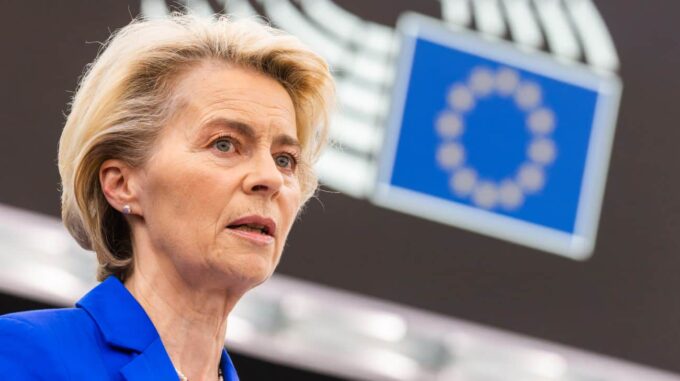Zelensky and the European Commission Discussed Ways to Integrate Ukraine into the European Union at the Rome Meeting

On Saturday, April 26, 2025, the capital of Italy—Rome—hosted an important meeting between Ukrainian President Volodymyr Zelensky and European Commission President Ursula von der Leyen. This was the first public conversation between the two leaders following extensive diplomatic efforts from both sides to accelerate Ukraine's European integration process and to achieve candidate status as a full member of the European Union. According to the official statement from von der Leyen's office on X (formerly Twitter), during the meeting, the leaders exchanged views on the key steps Ukraine needs to take on its path toward full accession to the European community. In her post, she assured that the European Union would support Ukraine in its pursuit of peace and stability and would do everything possible to help Kyiv establish a just and lasting peace. "You can count on our support at the negotiating table to achieve a just and lasting peace. Today, we also discussed the measures Ukraine is taking to earn its place among our nations," Ursula von der Leyen wrote in her tweet after the meeting. These words reaffirm the importance of international support and the EU's commitment to expedite Ukraine’s integration process. The groundwork for this diplomatic dialogue was laid earlier this year when the EU established its first cluster within the framework of negotiations regarding Ukraine's accession. However, at that time, the Hungarian side—led by Prime Minister Viktor Orbán—blocked this decision. According to the Hungarian government, the opening of new clusters for Ukraine depends on completing consultations with the public on this issue, which has sparked skepticism and criticism from Ukraine and other partners. Moreover, Viktor Orbán publicly expressed his position, stating that Ukraine currently does not have sufficient grounds for EU membership and opposing rapid progress in this direction. Additionally, Hungarian politicians have announced their intention to block any incremental steps toward opening new negotiation clusters. Meanwhile, according to EuroPravda, the situation surrounding Ukraine's EU accession is further complicated by Moldova, which is also actively seeking to join the European family. Moldova has the possibility to take steps without Hungarian blocking, which could accelerate the process for its neighbor and further complicate matters for Kyiv. The content of the Rome meeting emphasizes that Ukrainian authorities remain committed to maintaining dialogue with European partners and are eager to accelerate the integration process as much as possible, despite resistance from certain member states. At the same time, Ukrainian diplomats and politicians call on the global community to support and expand aid efforts to overcome existing obstacles and to make Ukraine a full-fledged member of the EU as soon as possible. Currently, the process of Ukraine's accession to the EU remains one of the most urgent and complex challenges for Ukrainian diplomacy. Joining the European family not only signifies political and economic stability for the country but also symbolizes its European identity and aspiration for democracy and the rule of law. Therefore, all parties are interested in completing this process as swiftly and smoothly as possible. So far, the most significant obstacle remains internal European political disagreements and blockages by certain countries, primarily Hungary. However, considering the universal value of civilization and geopolitical interests, many experts believe that cooperation and diplomacy can overcome this crisis on Ukraine's path toward European integration.

